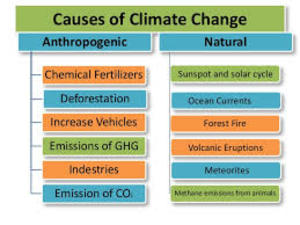In contemporary discourse surrounding climate change, the implications of dietary choices have ignited fervent debate. While a plethora of individuals embrace veganism as a panacea to environmental degradation, it is essential to unravel the complexities inherent in vegan products and their contribution—if any—to global warming. Is it accurate to assert that adopting a plant-based diet can indeed halt the advance of climate change? The answer is intricate, and untangling this narrative reveals unforeseen insights.
At the heart of this discussion lies an indelible truth: food production’s carbon footprint is staggering, and animal agriculture is a significant contributor. Methane emissions, derived largely from livestock, and the vast deforestation associated with animal farming, coalesce to create an ecological quandary. However, does this mean that all vegan products are devoid of environmental impact? The answer is a nuanced “no.” While it is easy to laud veganism as an unmitigated triumph in the quest for sustainability, discerning the environmental ramifications of various vegan products reveals a paradox.
The allure of a vegan lifestyle is akin to a double-edged sword. At its core, a vegan diet eliminates animal products, ostensibly resulting in lower greenhouse gas emissions. A multitude of studies suggests that transitioning to plant-based diets could reduce food-related emissions by up to 70%. Yet, the intricacies of the supply chain for many vegan foods often entail significant environmental consequences. Take, for instance, the production of soy and almonds, which are staples in many vegan diets. These crops can necessitate extensive land use and exorbitant water consumption, raising concerns about whether the environmental costs overshadow the benefits of plant-based nutrition.
The burgeoning vegan market is punctuated by a plethora of highly processed foods, often marketed as “vegan-friendly.” These products, while palatable, frequently embody the industrial farming practices that have precipitated global warming. Items such as vegan cheeses, plant-based burgers, and pre-packaged vegan meals may garner positive evaluations for their ethical stance, yet their manufacturing processes can contribute significantly to carbon emissions. The environmental cost of processing, packaging, and transiting these goods can rival or even exceed the emissions derived from certain animal products.
The dichotomy within the vegan product range beckons a deeper introspection. Whole food plant-based diets—rich in unprocessed fruits, vegetables, grains, legumes, nuts, and seeds—generally have a more favorable environmental profile compared to their heavily processed counterparts. This observation leads to an essential conclusion: not all vegan foods bear the same impact on climate change. Therefore, conscious consumerism becomes paramount; selecting food items that are not only vegan but also sustainably sourced is critical in the fight against global warming.
Compounding the complexity of this dialogue is the globalized nature of food distribution. The reliance on exotic fruit and vegetables, often flown in from distant lands, negates some of the eco-friendly advantages typically claimed by a plant-based diet. For example, avocados from Mexico and quinoa from South America can leave a substantial carbon footprint. This raises an undeniable question: at what cost comes our insatiable appetite for variety in the plant-based realm?
Undoubtedly, the rise of veganism swells with a captivating ethical narrative. Choosing to abstain from animal products reflects an embodiment of compassion towards sentient beings and a commitment to minimizing collective ecological harm. However, the environmental efficacy of veganism must rest upon the principles of sustainability. The adage, “think globally, eat locally,” emerges as a guiding principle. Opting for seasonal, locally sourced plant-based foods can significantly mitigate the environmental repercussions associated with transportation and processing.
Moreover, regenerative agriculture offers a plausible framework for re-establishing harmony between farming practices and environmental stewardship. This agricultural methodology advocates for practices that focus on regenerating soil health, improving biodiversity, and sequestering carbon. Thus, some plant-based foods cultivated within regenerative systems possess the potential to act as carbon sinks, directly countering the effects of global warming rather than contributing to them. For environmental advocates and consumers alike, a focus on supporting these farming methods stands as a beacon of hope amid the backdrop of climate-induced despair.
As the climate emergency escalates, the urgency to shift towards sustainable food systems cannot be overstated. The concept of a vegan diet frequently intrigues new adherents, piquing curiosity with its promise to mitigate environmental devastation. However, it would be simplistic to adopt veganism as a catchall solution to the intricate web of climate issues. Education around the nuances of vegan food production, exemplifying the need for critical insight into plant-based consumption, is vital. Only through informed choices can individuals truly champion the cause of sustainability.
In conclusion, the inquiry into whether vegan products contribute to global warming unveils a tapestry of interwoven factors that demand rigorous examination. While a vegan lifestyle undoubtedly holds the key to curbing livestock-related emissions, it is imperative to consider the broader environmental implications of food choices within the plant-based realm. This examination underscores an essential truth: the allure of veganism shines brightest when aligned with sustainable practices, thereby ensuring that the promise of a greener, more sustainable future does not become tarnished by the complexities of food production.







